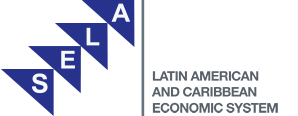NICARAGUA
Official name: REPUBLIC OF NICARAGUA
Date of membership: 02 February 1976
Short name: Nicaragua
Capital: Managua
Government
Administrative divisions: 15 departments (departamentos, singular - departamento) and 2 autonomous regions (regiones autonomistas, singular - region autonomista); Atlantico Norte, Atlantico Sur, Boaco, Carazo, Chinandega, Chontales, Esteli, Granada, Jinotega, Leon, Madriz, Managua, Masaya, Matagalpa, Nueva Segovia, Rio San Juan, Rivas.
Independence: 15 September 1821 (from Spain)
Constitution: 9 January 1987; revised in 1995, 2000, and 2005
Suffrage: 16 years of age; universal
Executive branch: President Daniel Ortega Saavedra (since 10 January 2017); Vice President Rosario Murillo (since 10 January 2017).
Legislative branch: Unicameral National Assembly or Asamblea Nacional (92 seats; members are elected by proportional representation and party lists to serve five-year terms; one seat for previous President, one seat for runner-up in previous Presidential election.
Judicial branch: Supreme Court or Corte Suprema (16 judges elected for five-year terms by the National Assembly).
Internet code: .ni
Oficial Portal Web: http://www.cancilleria.gob.ni
Geography
Location: Central America, bordering both the Caribbean Sea and the North Pacific Ocean, between Costa Rica and Honduras.
Area: 130,370 km2
Land boundaries: 1,231 km
Border countries: Costa Rica 309 km, Honduras 922 km
Coastline: 910 km
Natural resources: Gold, silver, copper, tungsten, lead, zinc, timber, fish
Environment - international agreements: Party to: Biodiversity, Climate Change, Climate Change-Kyoto Protocol, Desertification, Endangered Species, Hazardous Wastes, Law of the Sea, Ozone Layer Protection, Ship Pollution, Wetlands.
Economic indicators
| Total at current prices | 13787 | Millions USD | 2017 |
| Per capita at current prices | 2217 | USD | 2017 |
| Growth rate per capita at constant prices | 3.7 | % | 2017 |
| Country share in regional GDP | 0.3 | % | 2017 |
| Imports of goods and services (GDP at current prices) | -55.4 | % | 2017 |
| Exports of goods and services (GDP at current prices) | 41.2 | % | 2017 |
Source: Nicaragua: Economic National Profile. CEPALSTAT. Databases and Statistical Publications. ECLAC. On line. Inquiry: July 07, 2019.
Socio-demographic indicators
| Total population | 6 347 | (000) | 2019 |
| Life expectancy | 76 | Años | 2015-2020 |
| Women | 79 | Años | 2015-2020 |
| Men | 73 | Años | 2015-2020 |
| Public health expenditure as a percentage of GDP | 7.8 | % | 2015 |
| Literacy rate for persons between the ages of 15 to 24 | 87.0 | % | 2005 |
| Net rate of enrolment in primary education | 97.0 | % | 2010 |
| Net rate of enrolment in secondary education | 48.9 | % | 2010 |
| Public expenditure on education as a percentage of GDP | 4.3 | % | 2017 |
| Gini Coefficient | 0.49 | % | 2004 |
| Unemployment | 5.2 | % | 2017 |
Source: Nicaragua: National Socio-Demographic Profile. CEPALSTAT. Data Bases and Statistical Publications. ECLAC. On line. Inquiry: July 07, 2019.
Languages: Spanish 97.5% (official), Miskito 1.7%, other 0.8% (1995 census)
Note: English and indigenous languages on Atlantic coast.






